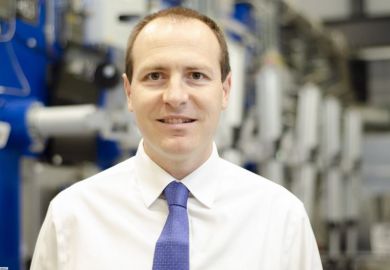Source: Alamy
Testing regimen: academics hope that changes will mean NHS trusts grant approval for research more speedily
A move to simplify the approval system for research undertaken within the NHS risks falling short of its goal of improving the process, academics have warned.
The Department of Health awarded £4.5 million to the NHS Health Research Authority in March to streamline the assessment and approval of studies, including clinical trials.
But Allan Hackshaw, professor of epidemiology and medical statistics at University College London, said that the planned measures may not tackle the problems that typically hold up research.
If academics want to use the NHS to conduct research, they must submit the proposed study to the HRA for ethical approval. Once this is in place, each NHS trust involved must assess whether it has the capacity and capability to take part and that the plans meet legal requirements.
The HRA wants to reduce bureaucracy and simplify the system so that academics can get started on researcher sooner. Janet Messer, programme director of HRA approval, said that the new system would move decisions on legal grounds up to the national level, freeing the trusts to concentrate on assessing their practical ability to take part.
“It is very much stripping out the complexity and effort involved in getting studies set up,” she said.
However, Sue Enright, operations director of the Leicester Clinical Trials Unit at the University of Leicester, warned that NHS trusts saw themselves as legal entities and “therefore would not agree to anyone conducting a review on their behalf”.
“Unless the HRA addresses this legal and indemnity [problem] with trusts, we may just have the same issues but wrapped up in a different coat,” she said.
Academics told Times Higher Education that trusts’ approval of studies can take anything from months to one year. The costs of any delays typically fall on the research funder.
David Torgerson, director of the York Trials Unit at the University of York, said that this may mean that the funder has to stump up money for a trial extension, resulting in fewer trials getting financed overall.
He added that he was “enthusiastic” about the principles of the streamlining but will reserve judgement until it has been “road-tested”.
Professor Hackshaw argued that local-level assessments could “still take for ever” under the new system. “Scientific and technological advances are moving quite rapidly…so you need research to keep up with that speed,” he added.
He said that the UK has streamlined the process at the national level for research in the health service “really well” over the years “but they really need to do something about the local systems at the trust level”.
Ms Enright added that shortening approval times would be “good for global competitiveness”. It would also reduce the amount of time a researcher spends preparing documents for different trusts for the same study, she added.
Gareth Griffiths, scientific director of the Wales Cancer Trials Unit at Cardiff University, welcomed the HRA’s plan and said that it could help to attract pharmaceutical companies to work with the UK “more closely”.
Register to continue
Why register?
- Registration is free and only takes a moment
- Once registered, you can read 3 articles a month
- Sign up for our newsletter
Subscribe
Or subscribe for unlimited access to:
- Unlimited access to news, views, insights & reviews
- Digital editions
- Digital access to THE’s university and college rankings analysis
Already registered or a current subscriber? Login





